At Emplibot, we’ve witnessed firsthand how AI is reshaping the marketing landscape.
The question “How does AI affect marketing?” is on every marketer’s mind. From personalized customer experiences to data-driven decision-making, artificial intelligence is revolutionizing how businesses connect with their audience.
In this post, we’ll explore the transformative impact of AI on marketing strategies and provide actionable insights for leveraging this technology.
Contents
ToggleHow Does AI Personalize Marketing?
Tailoring Content to Individual Preferences
AI algorithms analyze vast amounts of user data, including browsing history, purchase behavior, and demographic information, to create highly personalized content. A study by Epsilon found that 80% of consumers are more likely to make a purchase when brands offer personalized experiences. This level of customization extends beyond simply addressing customers by name; it involves delivering relevant product recommendations, tailored email content, and personalized website experiences.
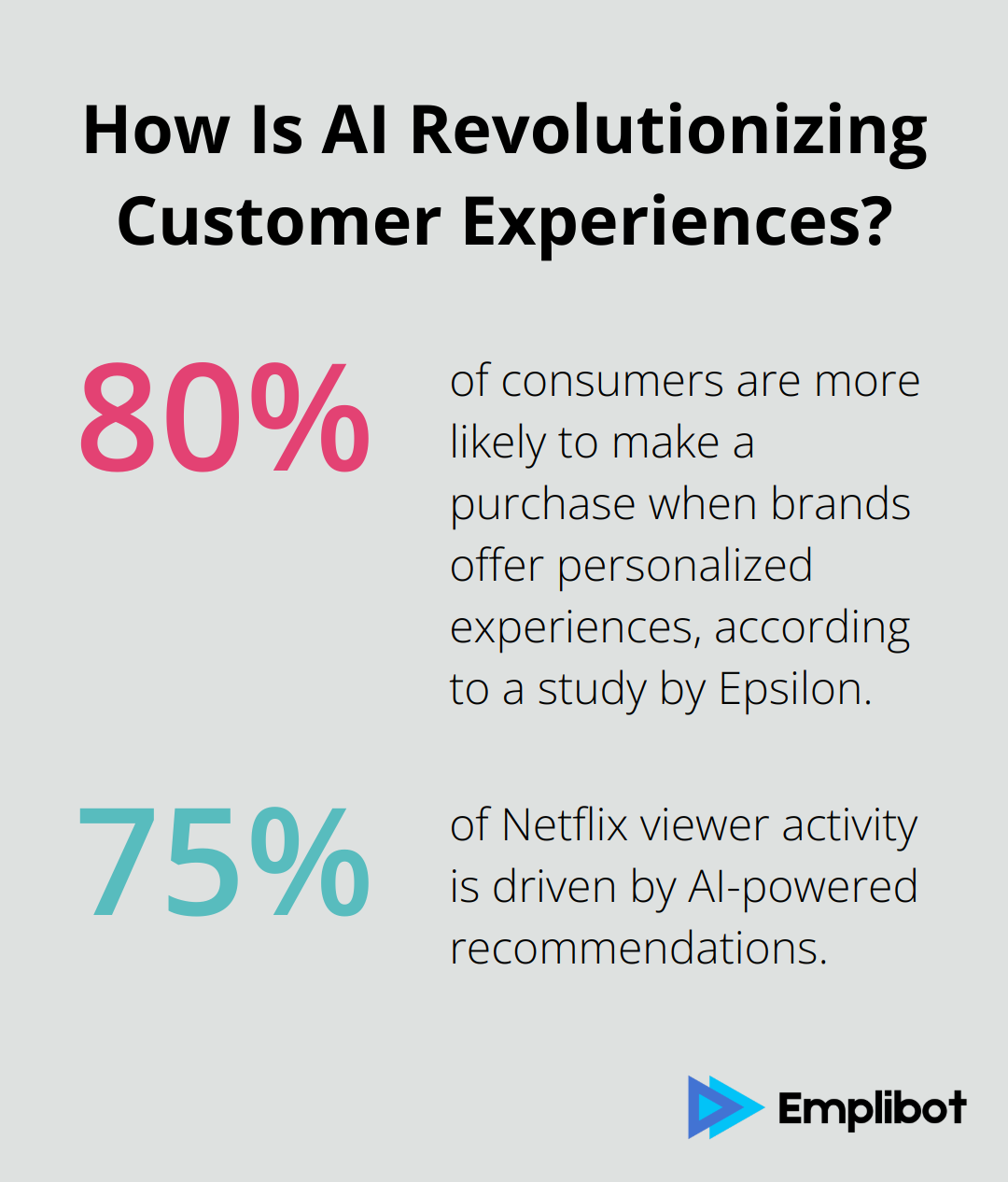
Netflix uses AI to analyze viewing habits and recommend shows and movies that align with individual tastes. This personalization has led to a reported 75% of viewer activity being driven by these recommendations.
Predicting Customer Behavior
AI’s ability to predict customer behavior revolutionizes marketing strategies. By analyzing historical data and identifying patterns, AI forecasts future actions with remarkable accuracy. This allows marketers to anticipate customer needs and preferences, creating more targeted and effective campaigns.
A subset of AI, deep learning has the potential to transform the future of marketing by helping businesses to predict consumer behavior.
Dynamic Pricing Strategies
Dynamic pricing has become a key strategy for B2C and B2B companies to optimize profits and stay competitive. By analyzing market demand, competitor pricing, and individual customer data, AI adjusts prices in real-time to maximize revenue and customer satisfaction.
Uber’s surge pricing model exemplifies this strategy in action. The company uses AI to analyze demand and adjust prices accordingly, ensuring optimal service availability during peak times.
Implementing AI-Powered Personalization
To implement AI-powered personalization effectively, businesses should:
- Invest in robust data collection and management systems
- Choose AI tools that integrate seamlessly with existing marketing platforms
- Continuously test and refine AI models to improve accuracy and effectiveness
- Prioritize transparency and data privacy to maintain customer trust
The Future of AI Personalization
As AI technology continues to advance, we can expect even more sophisticated personalization techniques to emerge. From hyper-targeted advertising to individualized product development, the possibilities are endless.
The next frontier in AI-powered marketing lies in enhancing the customer experience. Let’s explore how AI is transforming customer interactions and support in the digital age.
How AI Enhances Customer Experience
AI transforms customer experience in marketing. Let’s explore the key ways AI elevates customer interactions in today’s digital landscape.
24/7 Customer Support with AI
AI-powered chatbots and virtual assistants now handle a wide range of customer inquiries, from simple FAQs to complex issues. This round-the-clock support significantly improves customer satisfaction. Conversational AI reduces operational costs and increases profitability by automating repetitive tasks, providing 24/7 support, and handling a large volume of customer interactions simultaneously.
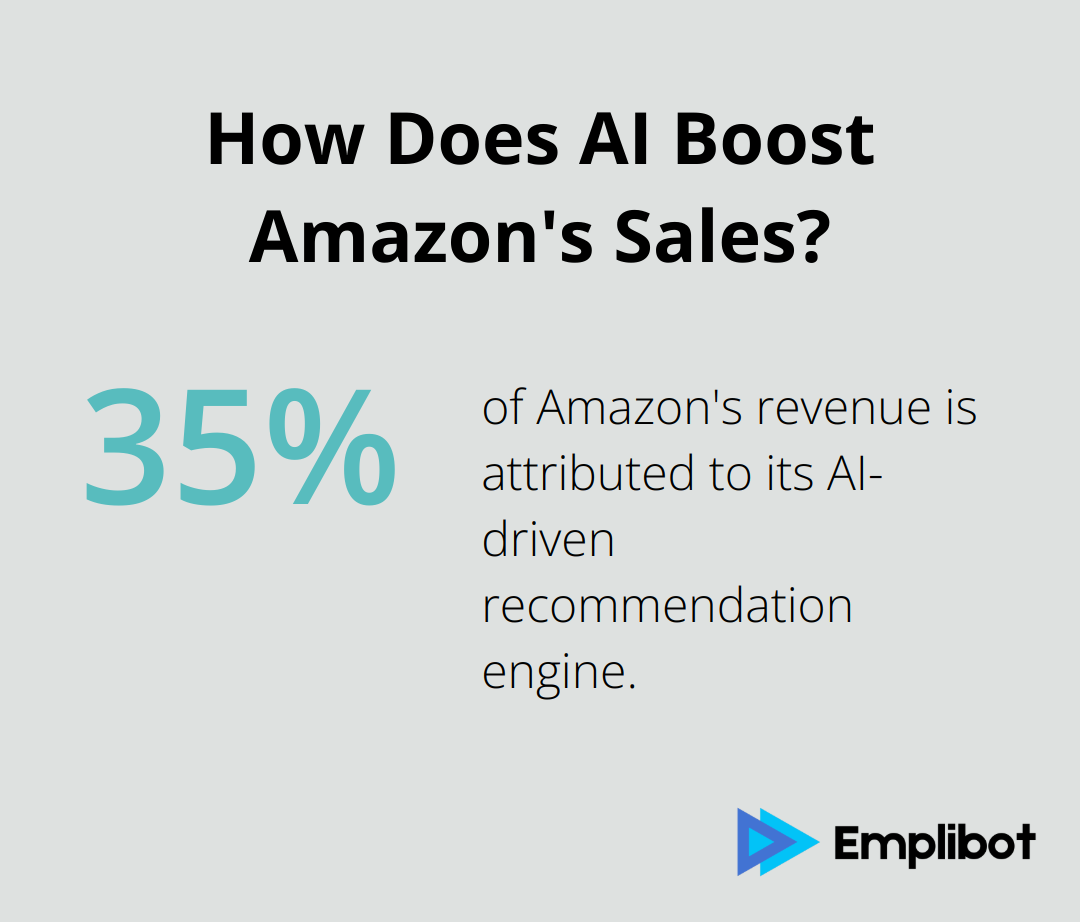
A study by Juniper Research projects chatbots will save businesses $8 billion annually by 2022. This reduction in costs comes with the added benefit of instant responses at any time of day.
H&M exemplifies this trend with their AI chatbot on their website and Facebook Messenger. The bot assists customers with product recommendations, order tracking, and general inquiries. This implementation has reduced call and email volume to their customer service centers by 70%.
Voice Search Optimization
The proliferation of voice-activated devices (like Amazon Alexa and Google Home) necessitates optimization for voice search. AI algorithms now understand natural language queries and provide accurate responses.
ComScore predicts that 50% of all searches will be voice searches by 2020. About 30% of searches will be done without a screen by 2020. This shift in user behavior requires marketers to adapt their SEO strategies.
To optimize for voice search:
- Focus on long-tail keywords that mimic natural speech patterns
- Create content that directly answers common questions in your industry
- Improve your chances of appearing in voice search results
These tactics not only boost search visibility but also enhance the overall user experience by providing more relevant and easily accessible information.
AI-Driven Product Recommendations
AI algorithms analyze vast amounts of data to provide personalized product recommendations. This capability significantly enhances the customer shopping experience. Amazon (a pioneer in this field) attributes 35% of its revenue to its recommendation engine.
These AI-driven recommendations increase sales and improve customer satisfaction by helping users discover products they’re likely to enjoy. Netflix reports that personalized recommendations drive 75% of viewer activity, leading to higher engagement and customer retention.
To implement effective AI-driven recommendations:
- Collect and analyze customer data across all touchpoints
- Use machine learning algorithms to identify patterns and preferences
- Refine your recommendation engine based on user feedback and behavior
AI’s impact on customer experience extends beyond these areas. The next chapter will explore how AI revolutionizes data analysis and decision-making in marketing strategies.
How AI Transforms Marketing Data Analysis
AI revolutionizes how marketers analyze data and make decisions. AI-powered tools provide unprecedented insights and automate complex processes.
Real-Time Market Trend Analysis
AI algorithms process vast amounts of data from social media, news outlets, and online marketplaces to identify emerging trends in real-time. This capability allows marketers to stay ahead of the curve and adapt their strategies quickly.
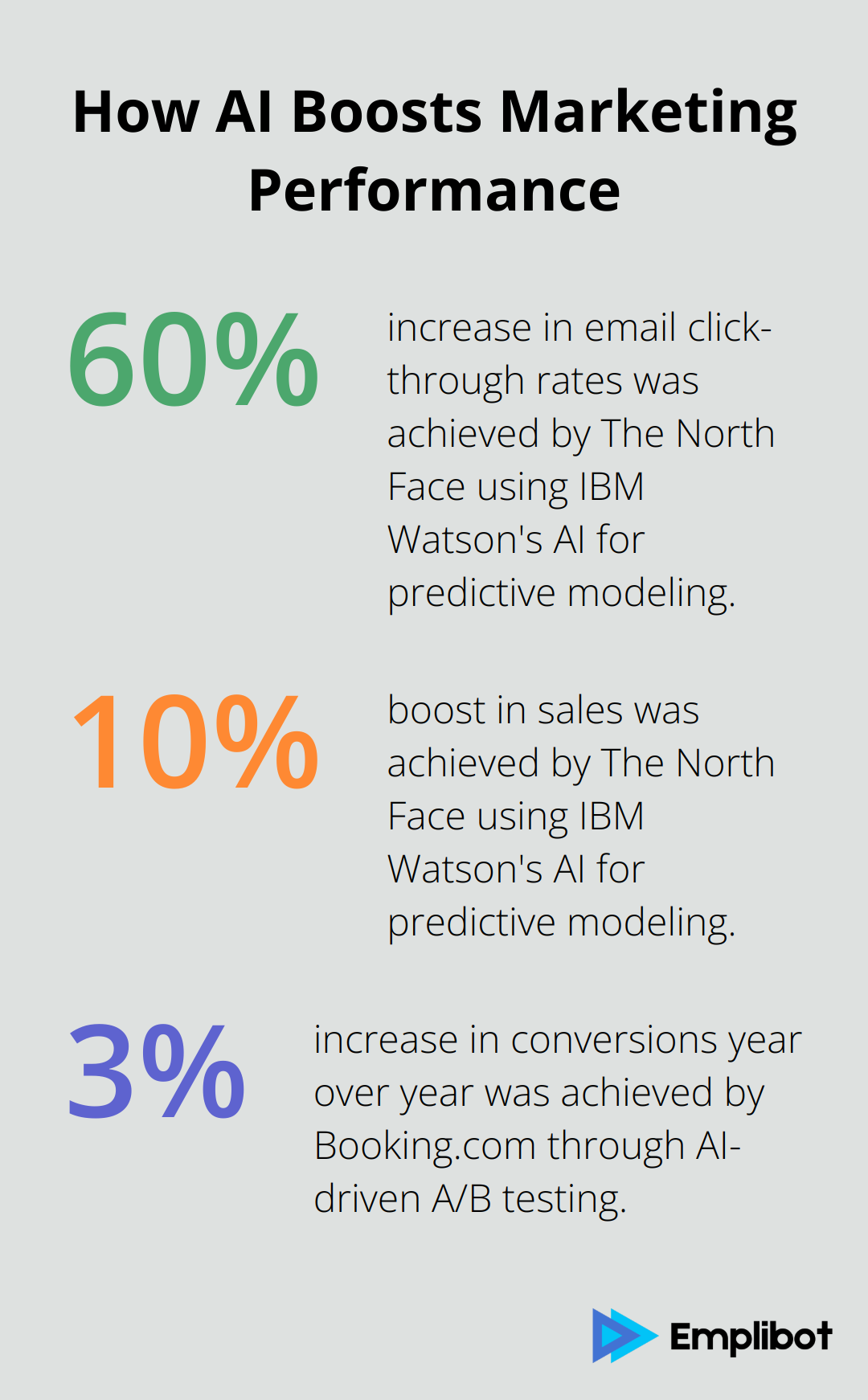
Fashion retailer Zara uses AI to analyze social media posts, customer feedback, and sales data to identify trending styles. This approach enables them to design, produce, and stock new items in as little as 15 days (compared to the industry average of 6 months).
To leverage real-time trend analysis effectively:
- Invest in AI-powered social listening tools
- Integrate data from multiple sources (e.g., sales, customer service, social media)
- Set up alerts for sudden changes in sentiment or emerging keywords
- Train your team to interpret AI-generated insights and act on them quickly
Automated A/B Testing at Scale
AI has transformed A/B testing by automating the process and analyzing results at scale. This advancement allows marketers to test multiple variables simultaneously and optimize campaigns in real-time.
Booking.com runs over 1,000 A/B tests simultaneously, analyzing millions of data points to optimize their website and user experience. This approach has led to a 3% increase in conversions year over year.
To implement AI-driven A/B testing:
- Use AI-powered tools that can handle multivariate testing
- Define clear goals and metrics for each test
- Allow the AI to run tests continuously, making incremental improvements
- Regularly review and interpret results to inform broader marketing strategies
Predictive Modeling for Campaign Performance
AI’s predictive capabilities now enable marketers to forecast campaign performance with remarkable accuracy. AI analyzes historical data and current market conditions to predict how different audience segments will respond to specific messages or offers.
The North Face uses IBM Watson’s AI to predict which products will resonate with different customer segments based on factors like weather patterns and purchase history. This approach has led to a 60% increase in email click-through rates and a 10% boost in sales.
To harness the power of predictive modeling:
- Ensure your data is clean, organized, and accessible
- Choose AI tools that integrate with your existing marketing stack
- Start with small-scale predictions and gradually expand as you gain confidence in the system
- Continuously feed new data into the model to improve its accuracy over time
AI’s role in data analysis and decision-making transforms marketing from an art into a science. Marketers who leverage these advanced capabilities create more effective campaigns, optimize resource allocation, and drive better results for their businesses.
Final Thoughts
AI has revolutionized marketing strategies, enabling unprecedented personalization and data-driven decision-making. It empowers marketers to predict customer behavior, optimize pricing, and enhance customer experiences through chatbots and voice search optimization. AI transforms data analysis with real-time trend insights, automated A/B testing, and accurate campaign performance forecasts.
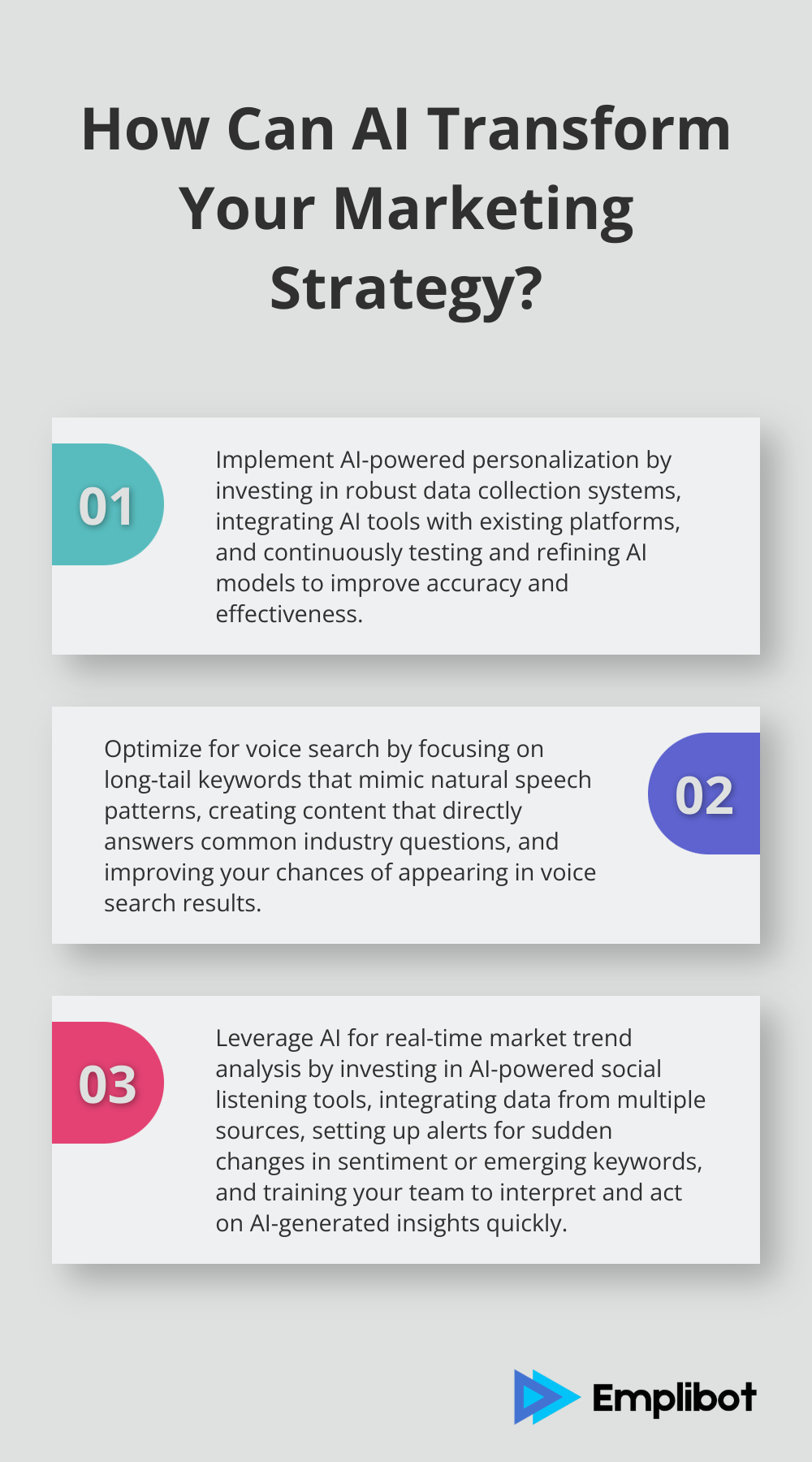
The future of marketing will see AI play an even more significant role. Businesses must develop clear strategies to leverage AI effectively in their marketing processes. However, human creativity and strategic thinking remain essential to complement AI-driven insights and create successful marketing campaigns.
Emplibot offers a comprehensive solution for businesses looking to automate their content marketing efforts and harness the power of AI. It handles everything from keyword research to content creation and distribution, enabling companies to increase their online presence and drive results without extensive manual effort. How does AI affect marketing? It fundamentally changes the way marketing is conceived and executed, positioning businesses that embrace this technology for success in the competitive digital landscape.





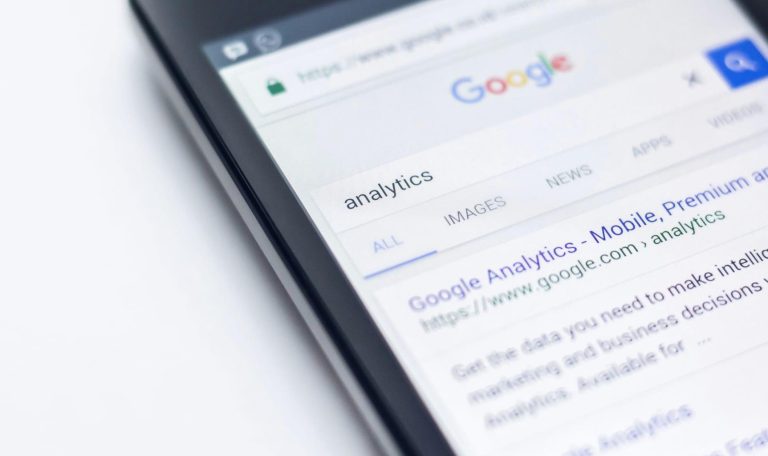




 Rated Excellent 4.5
Rated Excellent 4.5